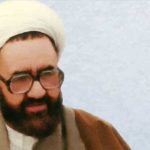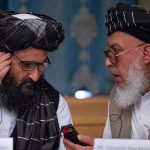Faraan Zionist Research Base; History is not static, but the past is the beacon of the future. If we do not learn from the past, we will lose the future. The future belongs to those who do not repeat the mistakes of the past.
In order to gain dignity and greatness, we must know the enemy well and identify and analyze the ways of his influence and conspiracy. Therefore, in this article, we seek to examine the history of scientific influence in the early days of Islam; an influence that has also led to political and social influence. Accordingly, history shows that the scientific influence of the enemies occurs in the context of cultural self-destruction and lack of self-confidence in the scientific resources, and the resulting socio-political influence provides the ground for the loss of the country’s independence.
The Supreme Leader articulated well the types of influences and their relationship to each other:
Today, the influence of the enemy is one of the great threats to this country. They are seeking influence. What does influence mean? Economic influence is possible, and of course, the least important influence is the economic influence. It is also possible that the least important influence is the security influence. [1]
He also said in front of the commanders of the Islamic Revolutionary Guard Corps on 25 – Shahrivar – 1394:
Political influence is to influence decision-making centers and, if not, the whole process of decision-making. When the political apparatus and management apparatus of a country are influenced by the imperialistic enemies, then all decisions in that country will be made according to the will of the imperialists. The goal is to infiltrate the decision-making centers, if they could not infiltrate the decision-making centers; it is because there are places that make decisions.
The Jewish scientific influence in the advent of Islam
The Prophet of Islam (p.b.u.h) generally forbade the likeness of the Jews; that is, he even forbade the Muslims to dress like the Jews. In addition, the holy Prophet (p.b.u.h) strictly forbade reading and referring to the Jewish books. He even sternly forbade making copies of the Jewish books. He did not even allow the Muslims to refer to the Torah or get ther answers of their questions from the Jews. [2]
In order to understand these narrations and the social atmosphere in which these narrations are expressed, it should be noted that in the early Islamic society, Judaism had a scientific and cultural hegemony, and the Arabs severely looked down upon themselves against the Jews in the cultural aspect.
The Jews enjoyed a scientific and cultural richness over the illiterate Bedouin Arabs because of their use of the Torah and its concepts and the existence of educational libraries. This scientific hegemony had given rise to the Jewish socio-cultural authority and led some Arabs to send their children to the Jewish schools to be taught how to read and write.
We should not forget that the Jews were a minority in the Arabian Peninsula, so they tried to preserve their cultural privacy and identity. Hence, he acted in transmitting his religious teachings and focusing on the Torah, while in contrast, the Arabs of the Peninsula did not benefit from science and culture except poetry and were engaged in camel-riding and war-mongering.
[1] Statement (of the Supreme Leader) in a meeting with the IRGC commanders, September 16, 2015.
[2] refer to: Usud al-Ghabah, vol 3, p. 188, ‘Iz al-Din ibn al-Athir Abi al-Hassan ‘Ali bin Muhammad al-Jazari – passed away on 630, Dar Nashr, Dar Ihya’a al-Turath al-Arabi – Beirut/Lebanon 1417 AH – (1996), first print. Research: Adil Ahmad al-Refai’, Tafsir ibn Kathir, vol. 1, p. 379, Ismail ibn Umar bin Kathir al-Dimashqi Abu al-Fida’ – passed away on 774, Dar al-Nashr, Dar al-Fikr, Beirut, 1401 AH










